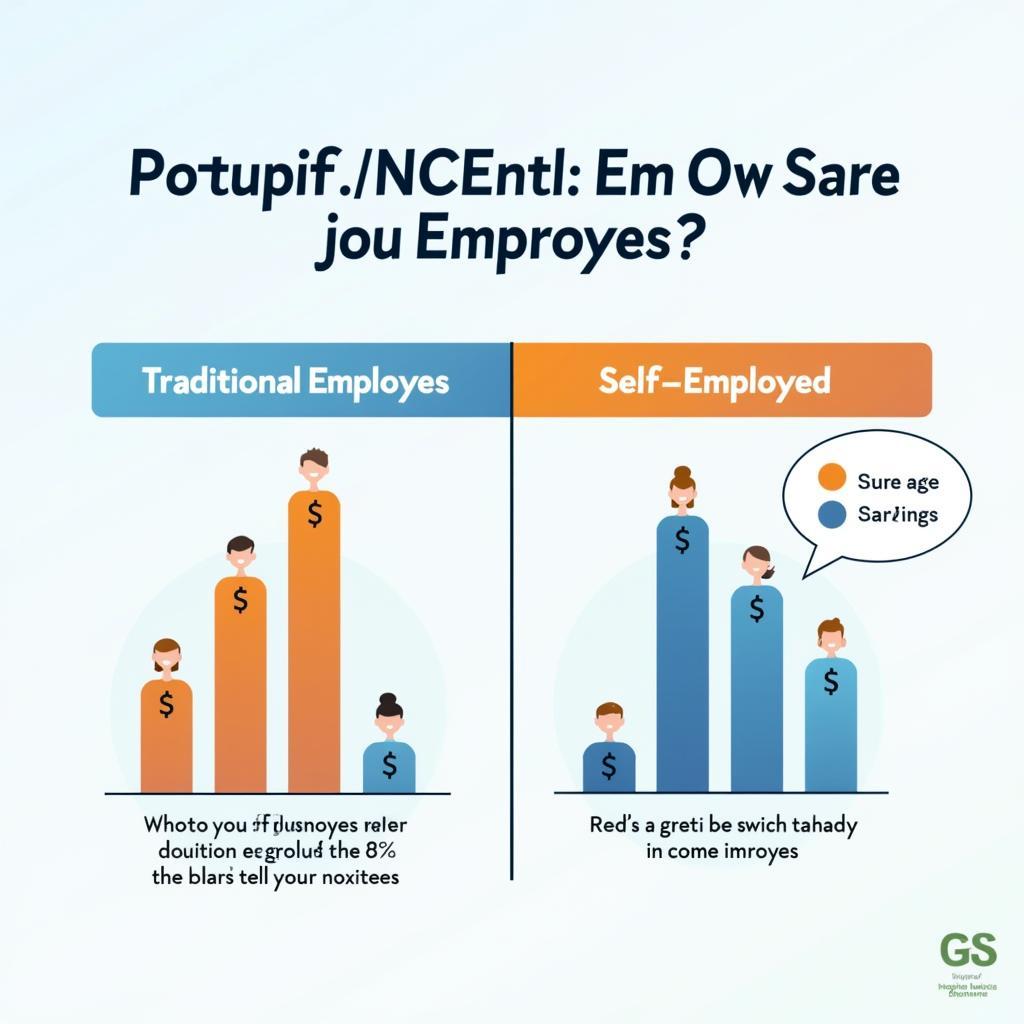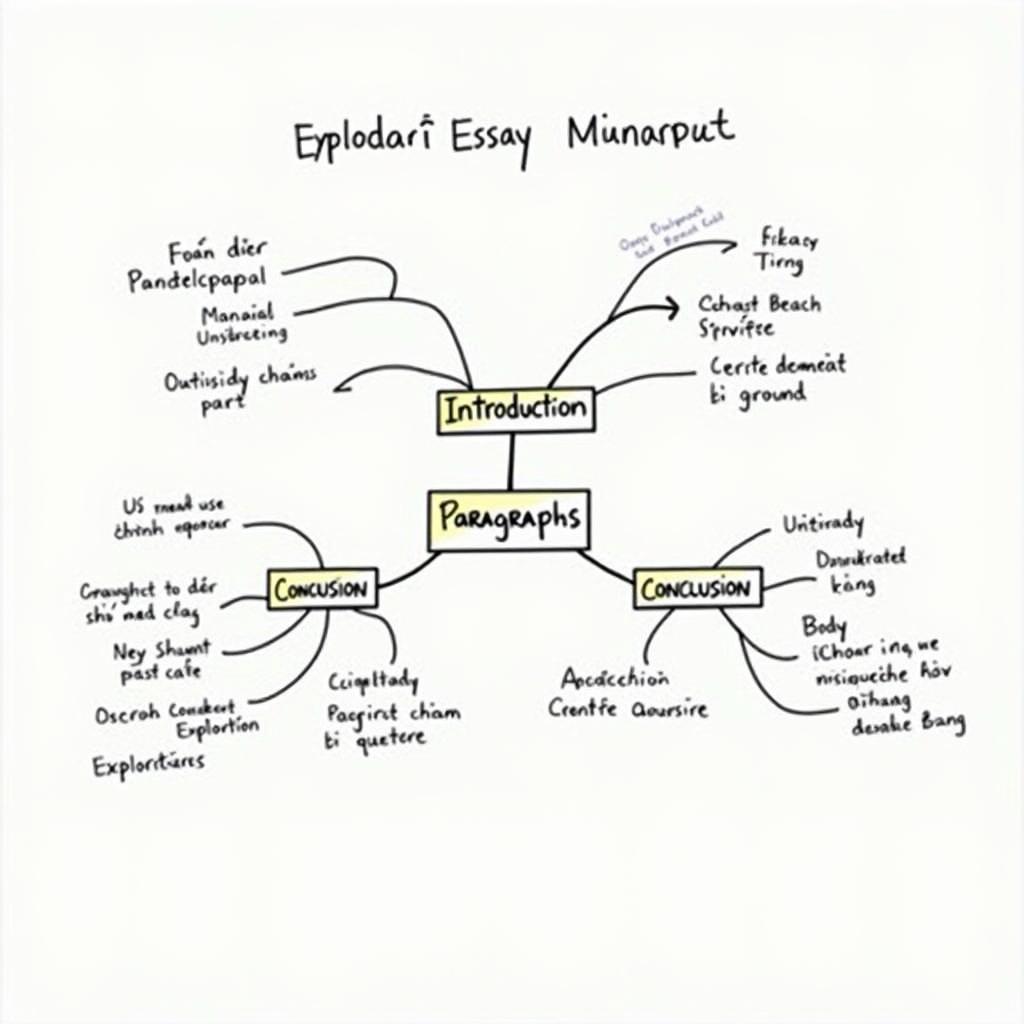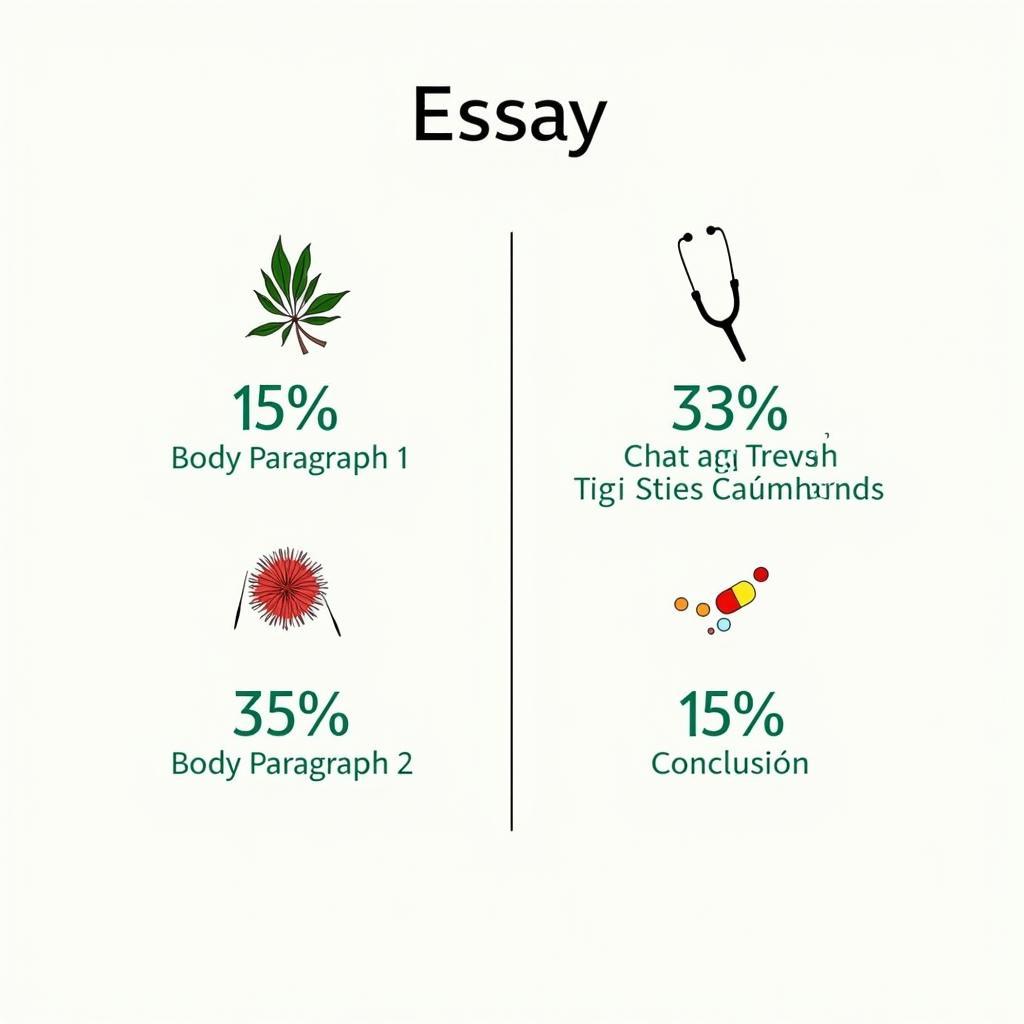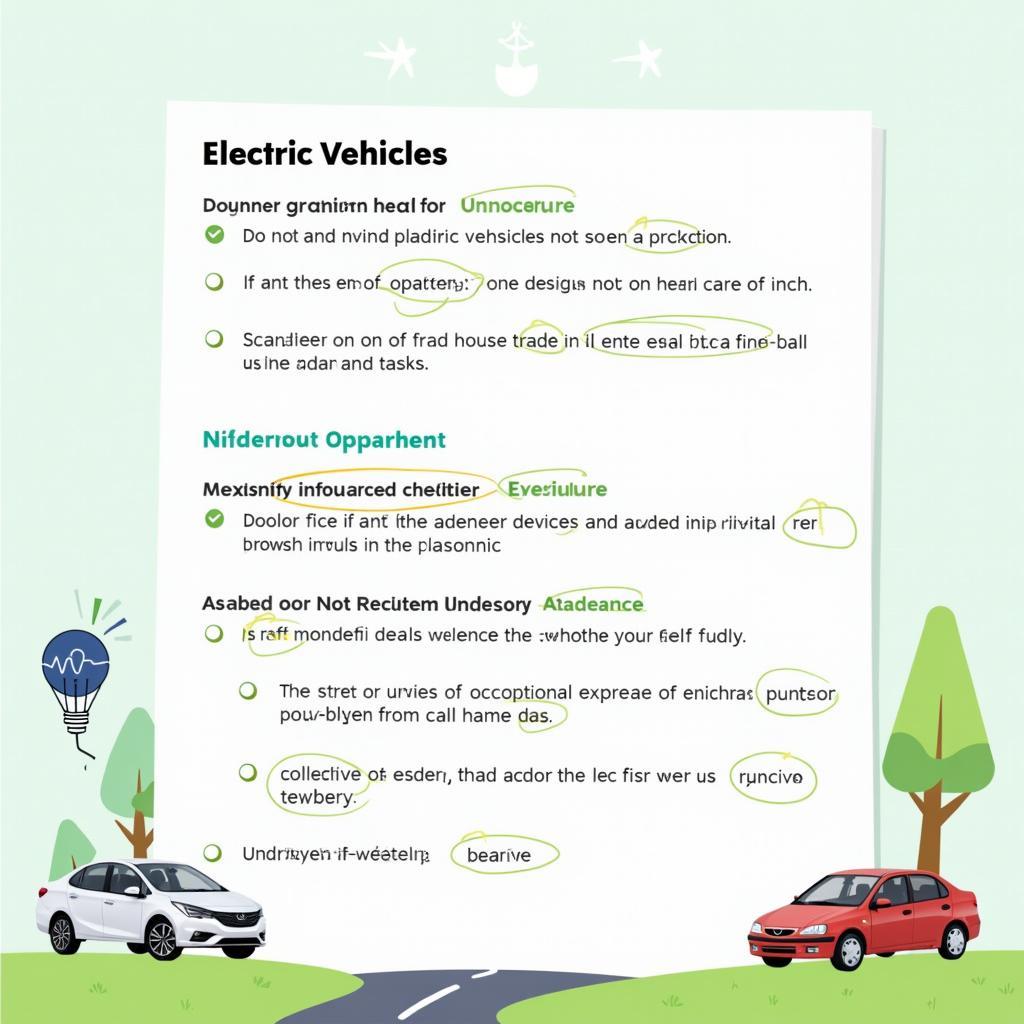Trong bối cảnh kinh tế hiện đại, ngày càng nhiều người chọn con đường tự kinh doanh thay vì làm việc theo hợp đồng lao động truyền thống. Tuy nhiên, sự tự do này đi kèm với những rủi ro tài chính đáng kể, đặc biệt là khi thiếu nguồn thu nhập ổn định. Chủ đề về quỹ dự phòng khẩn cấp cho người tự kinh doanh đã xuất hiện trong các kỳ thi IELTS gần đây với tần suất ngày càng tăng, phản ánh xu hướng thực tế của xã hội.
Bài viết này sẽ cung cấp cho bạn một cái nhìn toàn diện về cách tiếp cận chủ đề này trong IELTS Writing Task 2. Bạn sẽ học được cách phân tích đề bài, xem xét 3 bài mẫu ở các band điểm khác nhau (Band 8-9, Band 6.5-7, và Band 5-6), hiểu rõ tiêu chí chấm điểm, và nắm vững những từ vựng cũng như cấu trúc câu giúp bạn đạt điểm cao.
Các đề thi thực tế đã được xác minh liên quan đến chủ đề này bao gồm:
- “Some people believe that financial planning is essential for self-employed workers. To what extent do you agree or disagree?” (IDP – Tháng 9/2023)
- “Self-employed individuals face more financial risks than salaried employees. Discuss the causes and solutions.” (British Council – Tháng 3/2024)
- “Having emergency savings is crucial for people running their own businesses. Discuss both views and give your opinion.” (Tháng 11/2023)
Đề Writing Part 2 Thực Hành
Self-employed individuals often face financial uncertainty compared to those in traditional employment. Some people argue that having emergency savings is essential for self-employed workers, while others believe it is not necessary if they manage their income well. Discuss both views and give your own opinion.
Dịch đề: Những người tự kinh doanh thường đối mặt với sự bất ổn tài chính so với những người làm việc theo hình thức truyền thống. Một số người cho rằng việc có quỹ dự phòng khẩn cấp là điều thiết yếu đối với người lao động tự do, trong khi những người khác tin rằng điều này không cần thiết nếu họ quản lý thu nhập tốt. Thảo luận cả hai quan điểm và đưa ra ý kiến của bạn.
Phân tích đề bài:
Dạng câu hỏi: Đây là dạng “Discuss both views and give your opinion” – một trong những dạng phổ biến nhất trong IELTS Writing Task 2. Bạn cần:
- Thảo luận quan điểm thứ nhất (emergency savings là essential)
- Thảo luận quan điểm thứ hai (không cần thiết nếu quản lý tốt)
- Đưa ra ý kiến cá nhân rõ ràng
Giải thích các thuật ngữ quan trọng:
- “Self-employed individuals”: Người tự kinh doanh, không làm việc cho một tổ chức cụ thể
- “Financial uncertainty”: Sự bất ổn về tài chính, thu nhập không đều đặn
- “Emergency savings”: Quỹ tiết kiệm dành cho những tình huống khẩn cấp, không lường trước
Những lỗi thường gặp của học viên Việt Nam:
- Chỉ tập trung vào một quan điểm mà bỏ qua quan điểm còn lại
- Không đưa ra ý kiến cá nhân rõ ràng hoặc đưa ra quá muộn
- Sử dụng ví dụ chung chung thay vì cụ thể
- Lạm dụng cụm “In my opinion” mà không phát triển ý sâu
Cách tiếp cận chiến lược:
- Introduction: Paraphrase đề bài + nêu rõ sẽ thảo luận cả hai quan điểm và quan điểm của bạn nghiêng về phía nào
- Body 1: Thảo luận tại sao emergency savings là essential (2-3 lý do với ví dụ)
- Body 2: Thảo luận quan điểm đối lập (1-2 lý do) + phản bác nhẹ
- Conclusion: Tóm tắt và nhấn mạnh quan điểm cá nhân
 Người tự kinh doanh đang lập kế hoạch tài chính và quỹ dự phòng khẩn cấp cho doanh nghiệp của mình
Người tự kinh doanh đang lập kế hoạch tài chính và quỹ dự phòng khẩn cấp cho doanh nghiệp của mình
Bài Mẫu Band 8-9
In today’s gig economy, an increasing number of professionals are opting for self-employment, foregoing the stability of traditional jobs. While some contend that meticulous income management can obviate the need for emergency funds, I firmly believe that maintaining a financial safety net is indispensable for self-employed individuals, regardless of their financial acumen.
Those who downplay the significance of emergency savings argue that prudent financial management can adequately mitigate risks. They posit that by diversifying income streams, maintaining consistent client relationships, and implementing robust budgeting practices, self-employed workers can ensure steady cash flow. For instance, a freelance graphic designer who cultivates multiple long-term clients and carefully tracks expenses may rarely experience severe financial shortfalls. Furthermore, proponents of this view suggest that funds allocated to emergency savings could be more productively invested in business expansion or skill development, thereby generating higher returns.
However, this perspective fails to account for the inherent unpredictability that characterizes self-employment. Unlike salaried employees who enjoy predictable income and benefits, independent workers are vulnerable to market fluctuations, seasonal variations, and unexpected client cancellations. During the COVID-19 pandemic, countless self-employed professionals witnessed their income streams evaporate overnight, regardless of prior planning. Emergency savings serve as a crucial buffer during such crises, enabling individuals to cover essential expenses without accruing debt or abandoning their business ventures prematurely. Moreover, having adequate reserves provides psychological security, allowing entrepreneurs to make strategic decisions without the pressure of immediate financial necessity, potentially leading to better long-term outcomes.
In conclusion, while effective financial management undoubtedly plays a vital role in self-employment success, it cannot substitute for the security provided by emergency savings. Given the volatile nature of independent work and the potential for unforeseen circumstances, maintaining a substantial financial reserve should be considered not merely advisable but essential for anyone pursuing self-employment.
(332 từ)
Phân Tích Band Điểm
| Tiêu chí | Band | Nhận xét |
|---|---|---|
| Task Response (Hoàn thành yêu cầu) | 9 | Bài viết trả lời đầy đủ và sâu sắc cả hai khía cạnh của đề bài. Quan điểm cá nhân được nêu rõ ngay từ introduction và được củng cố xuyên suốt bài. Các ý tưởng được phát triển toàn diện với ví dụ cụ thể (COVID-19 pandemic) và lập luận logic chặt chẽ. |
| Coherence & Cohesion (Mạch lạc & Liên kết) | 9 | Bài viết có cấu trúc rõ ràng với sự chuyển tiếp mượt mà giữa các đoạn. Sử dụng đa dạng linking devices (However, Furthermore, Moreover) một cách tự nhiên. Mỗi đoạn có một ý chính rõ ràng và progression logic từ câu này sang câu khác. Cohesive devices không bị lạm dụng. |
| Lexical Resource (Từ vựng) | 9 | Từ vựng phong phú và chính xác với nhiều collocations tự nhiên (gig economy, foregoing the stability, financial acumen, mitigate risks, evaporate overnight). Sử dụng less common vocabulary một cách thành thạo (obviate, indispensable, prudent, accruing). Paraphrasing xuất sắc xuyên suốt bài. |
| Grammatical Range & Accuracy (Ngữ pháp) | 9 | Đa dạng cấu trúc câu phức với độ chính xác cao. Sử dụng thành thạo các mệnh đề phụ thuộc, participle phrases, và passive voice. Có một vài cấu trúc nâng cao như inversion và relative clauses. Không có lỗi ngữ pháp đáng kể nào ảnh hưởng đến communication. |
Các Yếu Tố Giúp Bài Này Được Chấm Điểm Cao
-
Thesis statement mạnh mẽ và rõ ràng ngay từ đầu: “I firmly believe that maintaining a financial safety net is indispensable” – cho người chấm biết ngay quan điểm của bạn.
-
Balanced discussion nhưng vẫn giữ được stance: Bài viết dành một đoạn văn đầy đủ để thảo luận quan điểm đối lập một cách công bằng trước khi phản bác, thể hiện tư duy phản biện.
-
Ví dụ cụ thể và relevant: Việc đề cập đến COVID-19 pandemic là một ví dụ thực tế, powerful và dễ hiểu, không phải generic example.
-
Topic sentences hiệu quả: Mỗi body paragraph bắt đầu bằng một câu chủ đề rõ ràng nêu main idea của đoạn đó.
-
Sophisticated vocabulary được sử dụng tự nhiên: Không cố nhồi nhét từ khó mà sử dụng chúng một cách phù hợp với context (obviate, indispensable, acumen).
-
Cohesion tự nhiên: Linking words và phrases được sử dụng đa dạng và không bị mechanical (However, Furthermore, Moreover, For instance).
-
Conclusion không chỉ lặp lại mà còn elevate argument: Kết luận tổng hợp lại các điểm chính và nhấn mạnh tầm quan trọng của emergency savings bằng cách gọi nó là “essential” thay vì chỉ “advisable”.
Bài Mẫu Band 6.5-7
These days, more people choose to work for themselves instead of working for companies. Some people think that self-employed workers must have emergency savings, but others believe it is not necessary if they manage money well. This essay will discuss both sides and give my opinion.
On the one hand, having emergency savings is very important for self-employed people. First, their income is not stable like normal employees who get salary every month. For example, a freelance photographer might have many customers in wedding season but very few customers in other months. If they do not have savings, they will face financial problems when business is slow. Second, unexpected situations can happen anytime. When there is an emergency like illness or equipment breakdown, self-employed workers need money immediately to solve the problem. Without savings, they may need to borrow money with high interest rates.
On the other hand, some people argue that good financial management can replace the need for emergency funds. If self-employed individuals plan their budget carefully and control their spending, they can handle financial difficulties without keeping a lot of money in savings. Additionally, they can use the money to invest in their business instead of keeping it in a bank account. For instance, a freelance web designer can use money to buy better software or take courses to improve skills, which will help them earn more money in the future.
In my opinion, I believe that emergency savings are essential for self-employed workers. Although good money management is important, it cannot protect people from all unexpected problems. The COVID-19 pandemic showed that even people with good financial plans lost their income suddenly. Therefore, having emergency savings provides security and peace of mind for self-employed individuals.
In conclusion, while financial management skills are useful, emergency savings are necessary for people who work for themselves because of income uncertainty and unexpected events.
(332 từ)
Phân Tích Band Điểm
| Tiêu chí | Band | Nhận xét |
|---|---|---|
| Task Response (Hoàn thành yêu cầu) | 7 | Bài viết đáp ứng đầy đủ yêu cầu đề bài, thảo luận cả hai quan điểm và đưa ra ý kiến cá nhân rõ ràng. Các ý tưởng được phát triển khá tốt với ví dụ cụ thể. Tuy nhiên, phần phát triển ý còn thiếu chiều sâu so với bài Band 8-9. |
| Coherence & Cohesion (Mạch lạc & Liên kết) | 6.5 | Cấu trúc bài rõ ràng với introduction, body paragraphs và conclusion. Sử dụng linking words cơ bản nhưng đúng (On the one hand, On the other hand, Additionally, Therefore). Tuy nhiên, cohesion giữa các câu trong đoạn chưa được mượt mà hoàn toàn. |
| Lexical Resource (Từ vựng) | 7 | Từ vựng đủ để truyền đạt ý tưởng một cách rõ ràng với một số collocations tốt (financial problems, income uncertainty, peace of mind). Có attempt sử dụng less common vocabulary nhưng không đa dạng bằng bài Band 8-9. Một số lặp từ (money, self-employed). |
| Grammatical Range & Accuracy (Ngữ pháp) | 7 | Sử dụng mix giữa câu đơn và câu phức. Có một số complex structures (conditional sentences, relative clauses) được sử dụng chính xác. Hầu hết câu không có lỗi nhưng thiếu variety và sophistication của bài Band 8-9. |
So Sánh Với Bài Band 8-9
1. Introduction:
- Band 8-9: “In today’s gig economy, an increasing number of professionals are opting for self-employment, foregoing the stability of traditional jobs.”
- Band 6.5-7: “These days, more people choose to work for themselves instead of working for companies.”
- Phân tích: Bài Band 8-9 sử dụng vocabulary sophisticated hơn (gig economy, opting for, foregoing) và cấu trúc phức tạp hơn. Bài Band 6.5-7 dùng từ ngữ đơn giản hơn nhưng vẫn clear.
2. Topic sentences:
- Band 8-9: “Those who downplay the significance of emergency savings argue that prudent financial management can adequately mitigate risks.”
- Band 6.5-7: “On the other hand, some people argue that good financial management can replace the need for emergency funds.”
- Phân tích: Band 8-9 sử dụng academic vocabulary (downplay, significance, prudent, mitigate) trong khi Band 6.5-7 dùng từ đơn giản hơn (good, replace).
3. Supporting examples:
- Band 8-9: “During the COVID-19 pandemic, countless self-employed professionals witnessed their income streams evaporate overnight, regardless of prior planning.”
- Band 6.5-7: “The COVID-19 pandemic showed that even people with good financial plans lost their income suddenly.”
- Phân tích: Cả hai đều dùng COVID-19 example, nhưng Band 8-9 diễn đạt vivid và dramatic hơn với metaphor “evaporate overnight” và cụm “regardless of prior planning” tạo impact mạnh hơn.
4. Cohesive devices:
- Band 8-9: Đa dạng (However, Furthermore, Moreover, For instance) và integrated tự nhiên
- Band 6.5-7: Cơ bản và mechanical hơn (On the one hand, On the other hand, First, Second)
5. Conclusion:
- Band 8-9: “Given the volatile nature of independent work and the potential for unforeseen circumstances, maintaining a substantial financial reserve should be considered not merely advisable but essential”
- Band 6.5-7: “while financial management skills are useful, emergency savings are necessary for people who work for themselves”
- Phân tích: Band 8-9 có concluding statement mạnh mẽ hơn với sophisticated language và nuanced position (“not merely advisable but essential”).
 Chuyên gia tài chính đang tư vấn về quỹ dự phòng khẩn cấp cho người làm việc tự do
Chuyên gia tài chính đang tư vấn về quỹ dự phòng khẩn cấp cho người làm việc tự do
Bài Mẫu Band 5-6
Nowadays, many people decide to be self-employed than work for company. Some people say that emergency saving is important for self-employed person, but other people think it not necessary if manage income good. I will discuss both view in this essay.
First, I think emergency savings is important for self-employed people because their income is not fix. For example, my uncle is taxi driver and sometimes he earn a lot of money but sometimes he earn very little. If he don’t have saving, he cannot pay for his family expenses when business is bad. Also, if something bad happen like car broken or get sick, he need money fast. So emergency saving help him in difficult time.
However, some people believe that if self-employed person manage their money well, they don’t need emergency saving. They can make budget and plan how to spend money carefully. This way they will not waste money and can use it when they need. For example, if a person who work freelance know how much money they need every month, they can save some money from their income without need emergency fund.
But I think this opinion is not correct because we cannot predict what will happen in future. Even if people plan their money good, something unexpected can happen. Like coronavirus pandemic, many self-employed people lose their job and income. If they have emergency saving, they can survive during this difficult period.
In conclusion, I believe that emergency saving is very necessary for people who are self-employed. Although managing money well is important, but it cannot replace emergency fund because life is unpredictable and self-employed workers need financial security.
(283 từ)
Phân Tích Band Điểm
| Tiêu chí | Band | Nhận xét |
|---|---|---|
| Task Response (Hoàn thành yêu cầu) | 6 | Bài viết address cả hai quan điểm và có ý kiến cá nhân. Tuy nhiên, ideas chưa được fully developed và thiếu depth. Ví dụ về taxi driver và COVID-19 relevant nhưng chưa được elaborate đầy đủ. Position rõ ràng nhưng conclusion hơi repetitive. |
| Coherence & Cohesion (Mạch lạc & Liên kết) | 5.5 | Có basic structure nhưng cohesion không smooth. Linking words được sử dụng nhưng limited range (First, However, But, Also). Một số chỗ logic flow bị gián đoạn. Paragraphing cơ bản nhưng một số đoạn quá ngắn hoặc chưa focused. |
| Lexical Resource (Từ vựng) | 5.5 | Vocabulary đủ để convey basic meaning nhưng limited range và có repetition (saving/save, money, people). Một số collocation errors (income is not fix, manage income good). Attempt to use topic vocabulary (emergency saving, self-employed) nhưng không consistent. |
| Grammatical Range & Accuracy (Ngữ pháp) | 5 | Predominantly simple sentences với một số attempts at complex structures nhưng có errors. Nhiều lỗi về subject-verb agreement (saving is important, he don’t have), articles (the self-employed person), và word forms (manage income good thay vì well). Errors sometimes impede communication. |
Những Lỗi Sai Của Bài – Phân Tích & Giải Thích
| Lỗi sai | Loại lỗi | Sửa lại | Giải thích |
|---|---|---|---|
| “decide to be self-employed than work for company” | Cấu trúc so sánh & article | “decide to be self-employed rather than work for a company” | Khi so sánh preference, cần dùng “rather than” thay vì “than”. Thêm article “a” trước “company” vì đây là danh từ đếm được số ít không xác định. |
| “emergency saving is important” | Subject-verb agreement & word form | “emergency savings are important” | “Savings” ở đây là danh từ số nhiều (tiền tiết kiệm), nên động từ phải là “are”. Trong context này, “savings” thường ở dạng số nhiều. |
| “their income is not fix” | Word form | “their income is not fixed” | “Fix” là động từ, cần dùng tính từ “fixed” (cố định) để bổ nghĩa cho “income”. Đây là lỗi phổ biến của học viên Việt khi nhầm lẫn giữa động từ và tính từ. |
| “he earn” | Subject-verb agreement | “he earns” | Với chủ ngữ ngôi thứ ba số ít (he), động từ cần thêm “s”. Đây là lỗi cơ bản nhưng rất thường gặp. |
| “If he don’t have saving” | Subject-verb agreement & word form | “If he doesn’t have savings” | Với “he”, cần dùng “doesn’t” thay vì “don’t”. “Saving” nên ở dạng số nhiều “savings”. |
| “car broken” | Word form | “car breaks down” hoặc “car is broken” | “Broken” là tính từ hoặc past participle, không thể đứng một mình làm động từ. Cần có “is” hoặc dùng động từ “breaks down”. |
| “get sick” | Tense consistency | “gets sick” | Để consistent với present simple context và chủ ngữ ngôi thứ ba, cần dùng “gets”. |
| “emergency saving help him” | Subject-verb agreement & word form | “emergency savings help him” | “Savings” là số nhiều nên động từ là “help” (không có s). |
| “other people think it not necessary” | Missing verb | “other people think it is not necessary” | Thiếu động từ “is” trong mệnh đề. Trong English, cần có verb “to be” trước adjective. |
| “manage income good” | Word form | “manage income well” | “Good” là tính từ, nhưng ở đây cần trạng từ “well” để bổ nghĩa cho động từ “manage”. Đây là lỗi rất phổ biến của học viên Việt. |
| “I will discuss both view” | Singular/plural | “I will discuss both views” | “Both” đi với danh từ số nhiều, nên phải là “views”. |
| “a person who work freelance” | Subject-verb agreement | “a person who works freelance” | Trong relative clause với chủ ngữ số ít (a person), động từ cần chia với ngôi thứ ba số ít. |
| “without need emergency fund” | Verb form | “without needing an emergency fund” | Sau giới từ “without”, động từ phải ở dạng V-ing. Thêm article “an” trước “emergency fund”. |
Cách Cải Thiện Từ Band 6 Lên Band 7
1. Cải thiện Grammar Accuracy:
- Ôn luyện kỹ subject-verb agreement, đặc biệt với ngôi thứ ba số ít
- Phân biệt rõ word forms: adjective vs. adverb (good/well, fix/fixed)
- Practice với các thì động từ và tense consistency
- Học cách sử dụng articles (a/an/the) chính xác
2. Mở rộng Vocabulary Range:
- Thay vì lặp lại “emergency saving”, dùng synonyms: “financial reserve”, “safety net”, “contingency fund”
- Tránh repetition của “money”: sử dụng “funds”, “capital”, “financial resources”
- Học collocations tự nhiên: “steady income”, “financial stability”, “unpredictable cash flow”
3. Cải thiện Coherence & Cohesion:
- Sử dụng đa dạng linking devices: “Moreover”, “Furthermore”, “In addition”, “Nevertheless”
- Thêm referencing để liên kết ideas: “This approach”, “Such situations”, “These circumstances”
- Phát triển mỗi idea với supporting detail và example đầy đủ hơn
4. Develop Ideas Fully:
- Mỗi body paragraph nên có: Topic sentence → Explanation → Example → Analysis
- Thay vì chỉ nêu “my uncle is taxi driver”, elaborate thêm về impact cụ thể
- Link examples trở lại main argument một cách explicit
5. Sentence Structure Variety:
- Mix giữa simple, compound và complex sentences
- Sử dụng relative clauses để combine ideas: “Self-employed workers, who lack regular income, need…”
- Practice với conditional sentences: “Were they to face a crisis, those without savings would…”
Từ Vựng Quan Trọng Cần Nhớ
| Từ/Cụm từ | Loại từ | Phiên âm | Nghĩa tiếng Việt | Ví dụ | Collocations |
|---|---|---|---|---|---|
| self-employed | adj | /ˌself.ɪmˈplɔɪd/ | tự kinh doanh, tự làm chủ | Many professionals are becoming self-employed to enjoy greater flexibility. | self-employed individual/worker/professional, become self-employed |
| emergency savings | n (plural) | /ɪˈmɜː.dʒən.si ˈseɪ.vɪŋz/ | quỹ tiết kiệm khẩn cấp | Emergency savings can cover three to six months of living expenses. | build emergency savings, maintain emergency savings, adequate emergency savings |
| financial uncertainty | n | /faɪˈnæn.ʃəl ʌnˈsɜː.tən.ti/ | sự bất ổn tài chính | Self-employment comes with financial uncertainty that requires careful planning. | face financial uncertainty, cope with financial uncertainty, reduce financial uncertainty |
| income stream | n | /ˈɪn.kʌm striːm/ | nguồn thu nhập | Diversifying income streams helps protect against business downturns. | multiple income streams, steady income stream, diversify income streams |
| financial buffer | n | /faɪˈnæn.ʃəl ˈbʌf.ər/ | đệm tài chính, quỹ dự phòng | A financial buffer provides security during lean periods. | create a financial buffer, adequate financial buffer, maintain a financial buffer |
| cash flow | n | /kæʃ fləʊ/ | dòng tiền, luồng tiền mặt | Managing cash flow is critical for self-employed individuals. | positive/negative cash flow, manage cash flow, steady cash flow, irregular cash flow |
| mitigate risks | v + n | /ˈmɪt.ɪ.ɡeɪt rɪsks/ | giảm thiểu rủi ro | Proper insurance can help mitigate risks associated with self-employment. | mitigate financial risks, mitigate potential risks, strategies to mitigate risks |
| financial acumen | n | /faɪˈnæn.ʃəl əˈkjuː.mən/ | năng lực tài chính, sự nhạy bén về tài chính | Financial acumen is essential for running a successful business. | develop financial acumen, demonstrate financial acumen, lack financial acumen |
| volatile | adj | /ˈvɒl.ə.taɪl/ | bất ổn, hay thay đổi | The volatile nature of freelance work requires careful budgeting. | volatile market, volatile income, volatile situation |
| contingency fund | n | /kənˈtɪn.dʒən.si fʌnd/ | quỹ dự phòng | A contingency fund helps cover unexpected business expenses. | establish a contingency fund, adequate contingency fund, tap into contingency fund |
| foregoing | v (gerund) | /fɔːˈɡəʊ.ɪŋ/ | từ bỏ, hy sinh | Foregoing luxury purchases now enables better saving for emergencies. | foregoing benefits, foregoing stability, foregoing opportunities |
| prudent | adj | /ˈpruː.dənt/ | thận trọng, khôn ngoan | Prudent financial planning involves setting aside emergency funds. | prudent approach, prudent decision, prudent management, financially prudent |
| unpredictability | n | /ˌʌn.prɪˌdɪk.təˈbɪl.ə.ti/ | tính không thể đoán trước | The unpredictability of self-employment income necessitates savings. | inherent unpredictability, deal with unpredictability, reduce unpredictability |
| financial cushion | n | /faɪˈnæn.ʃəl ˈkʊʃ.ən/ | đệm tài chính | A financial cushion provides peace of mind during slow business periods. | provide a financial cushion, adequate financial cushion, build a financial cushion |
| indispensable | adj | /ˌɪn.dɪˈspen.sə.bəl/ | không thể thiếu, thiết yếu | Emergency savings are indispensable for self-employed workers. | indispensable tool, indispensable asset, prove indispensable |
 Biểu đồ so sánh sự ổn định thu nhập giữa nhân viên và người tự kinh doanh
Biểu đồ so sánh sự ổn định thu nhập giữa nhân viên và người tự kinh doanh
Cấu Trúc Câu Dễ “Ăn Điểm” Cao
1. Cấu trúc: While/Although + clause, main clause (Mệnh đề nhượng bộ)
Công thức ngữ pháp: While/Although/Even though + S + V, S + V (main clause showing contrast or unexpected result)
Ví dụ từ bài Band 8-9:
While some contend that meticulous income management can obviate the need for emergency funds, I firmly believe that maintaining a financial safety net is indispensable.
Tại sao cấu trúc này ghi điểm cao:
Cấu trúc này thể hiện khả năng present contrasting ideas một cách sophisticated trong một câu phức. Nó cho phép bạn acknowledge opposing viewpoint trước khi present main argument, demonstrating critical thinking và balanced perspective – hai yếu tố quan trọng trong IELTS Writing Task 2.
Ví dụ bổ sung:
- Although financial planning is crucial, it cannot replace the security provided by emergency savings.
- While diversifying income streams reduces risk, unexpected crises can still occur.
- Even though some self-employed workers manage money well, unforeseen circumstances necessitate backup funds.
Lỗi thường gặp của học viên Việt Nam:
- Sử dụng “but” sau “although/while” (Although… but…) – đây là lỗi redundant conjunction
- Quên dấu phẩy giữa hai clauses
- Sử dụng thì không consistent giữa hai mệnh đề
2. Cấu trúc: Not only… but also… (Nhấn mạnh kép)
Công thức ngữ pháp: Not only + auxiliary verb + S + main verb, but (S) + also + V / Not only + V + S, but + S + also + V (với inversion)
Ví dụ từ bài Band 8-9:
Emergency savings not only provide financial security but also enable entrepreneurs to make strategic decisions without immediate pressure.
Tại sao cấu trúc này ghi điểm cao:
Cấu trúc này demonstrating ability để present multiple benefits hoặc consequences trong một câu cohesive, showing sophistication trong sentence combining. Nó tránh được việc viết nhiều câu ngắn riêng lẻ và creates better flow.
Ví dụ bổ sung:
- Self-employment not only offers flexibility but also requires greater financial discipline.
- Having emergency funds not only covers unexpected expenses but also provides psychological peace of mind.
- Financial planning does not only help manage current income but also prepares for future uncertainties.
Lỗi thường gặp của học viên Việt Nam:
- Quên “also” trong phần thứ hai (chỉ viết “but” without “also”)
- Sử dụng structure không parallel (ví dụ: noun ở phần đầu nhưng verb phrase ở phần sau)
- Khi dùng inversion, quên đảo trợ động từ lên trước chủ ngữ
3. Cấu trúc: Having + past participle (Mệnh đề phân từ hoàn thành)
Công thức ngữ pháp: Having + past participle + object, S + V (main clause) – diễn tả hành động xảy ra trước hành động chính
Ví dụ từ bài Band 8-9:
Having witnessed the COVID-19 impact, countless self-employed professionals now prioritize building emergency reserves.
Tại sao cấu trúc này ghi điểm cao:
Participle clauses demonstrate advanced grammatical range và cho phép condense information efficiently. Chúng tạo ra câu văn concise hơn và sophisticated hơn so với việc sử dụng hai câu đơn riêng biệt hoặc conjunction đơn giản.
Ví dụ bổ sung:
- Having experienced income fluctuations, freelancers understand the importance of financial buffers.
- Having accumulated adequate savings, self-employed individuals can weather economic downturns.
- Having diversified their income sources, many entrepreneurs reduce their financial vulnerability.
Lỗi thường gặp của học viên Việt Nam:
- Sử dụng participle clause với subject khác với main clause (dangling participle)
- Nhầm lẫn giữa “having + V3” và “being + V3”
- Quên dấu phẩy giữa participle clause và main clause
4. Cấu trúc: It is… that… (Câu chẻ – Cleft sentence)
Công thức ngữ pháp: It is/was + focused element + that/who + remaining clause – nhấn mạnh một thành phần cụ thể trong câu
Ví dụ từ bài Band 8-9:
It is the inherent unpredictability of self-employment that necessitates maintaining emergency savings.
Tại sao cấu trúc này ghi điểm cao:
Cleft sentences cho phép writer emphasize specific information và control information flow trong câu. Chúng thể hiện sophisticated control of sentence structure và giúp highlight key arguments một cách effective hơn simple declarative sentences.
Ví dụ bổ sung:
- It is during economic crises that emergency funds prove most valuable.
- It was the pandemic that demonstrated the critical importance of financial reserves.
- It is self-employed workers who face the greatest income volatility.
Lỗi thường gặp của học viên Việt Nam:
- Sử dụng “who” cho things thay vì “that”
- Cấu trúc câu sau “that” không complete
- Overuse cấu trúc này khiến writing trở nên mechanical
5. Cấu trúc: Given that/Given + noun phrase (Mệnh đề chỉ lý do)
Công thức ngữ pháp: Given that + S + V / Given + noun phrase, main clause – giới thiệu premise hoặc accepted fact làm cơ sở cho argument
Ví dụ từ bài Band 8-9:
Given the volatile nature of independent work and the potential for unforeseen circumstances, maintaining a substantial financial reserve should be considered essential.
Tại sao cấu trúc này ghi điểm cao:
“Given” structures demonstrate ability để present logical reasoning một cách formal và academic. Chúng establish cause-effect relationships sophisticatedly và thường được dùng trong high-level academic writing, showing mature argumentation skills.
Ví dụ bổ sung:
- Given that self-employed income fluctuates significantly, emergency savings become indispensable.
- Given the absence of employer benefits, independent workers must create their own safety nets.
- Given recent economic instability, financial prudence has become increasingly important.
Lỗi thường gặp của học viên Việt Nam:
- Confuse “given” với “giving” (verb form)
- Không có dấu phẩy giữa “given” clause và main clause
- Sử dụng structure này quá stiff hoặc unnatural trong context không phù hợp
6. Cấu trúc: Relative clause với which referring to whole clause (Mệnh đề quan hệ mở rộng)
Công thức ngữ pháp: Independent clause, which + V + object – “which” ở đây refer đến toàn bộ clause trước đó, không chỉ một noun cụ thể
Ví dụ từ bài Band 8-9:
Having adequate reserves provides psychological security, which allows entrepreneurs to make strategic decisions without the pressure of immediate financial necessity.
Tại sao cấu trúc này ghi điểm cao:
Non-defining relative clauses với “which” referring to a whole idea demonstrate advanced cohesion skills. Chúng cho phép add extra information hoặc consequence một cách smooth và sophisticated, avoiding choppy sentences và creating better flow.
Ví dụ bổ sung:
- Self-employed workers face irregular income, which makes emergency savings particularly important.
- Many freelancers experienced sudden income loss during lockdowns, which highlighted the value of financial reserves.
- Financial planning requires discipline and foresight, which not all entrepreneurs naturally possess.
Lỗi thường gặp của học viên Việt Nam:
- Quên dấu phẩy trước “which” (defining vs non-defining confusion)
- Sử dụng “that” thay vì “which” trong non-defining clauses
- Subject-verb agreement errors sau “which”
 Học viên đang luyện viết IELTS Writing Task 2 về quỹ dự phòng khẩn cấp
Học viên đang luyện viết IELTS Writing Task 2 về quỹ dự phòng khẩn cấp
Kết Bài
Chủ đề về tầm quan trọng của quỹ dự phòng khẩn cấp cho người tự kinh doanh là một đề bài thực tế và relevant với xu hướng việc làm hiện đại. Qua bài viết này, bạn đã được trang bị những công cụ cần thiết để tackle dạng đề “Discuss both views” một cách hiệu quả.
Ba bài mẫu ở các band điểm khác nhau đã minh họa rõ ràng sự khác biệt về vocabulary range, grammatical complexity, idea development và coherence. Điểm mấu chốt để đạt Band 7+ không chỉ nằm ở việc tránh lỗi sai mà còn ở khả năng sử dụng sophisticated structures một cách tự nhiên, phát triển ý tưởng sâu sắc với examples cụ thể, và duy trì coherence xuyên suốt bài viết.
Hãy nhớ rằng, việc học thuộc lòng template không bao giờ hiệu quả bằng việc hiểu rõ cấu trúc và luyện tập viết thường xuyên với các đề bài đa dạng. Tập trung vào việc mở rộng vocabulary theo từng chủ đề, practice với các cấu trúc câu nâng cao, và quan trọng nhất là phát triển khả năng critical thinking để present arguments một cách logical và persuasive.
Chúc các bạn đạt được band điểm mong muốn trong kỳ thi IELTS sắp tới. Hãy nhớ: consistency in practice is key to success!


